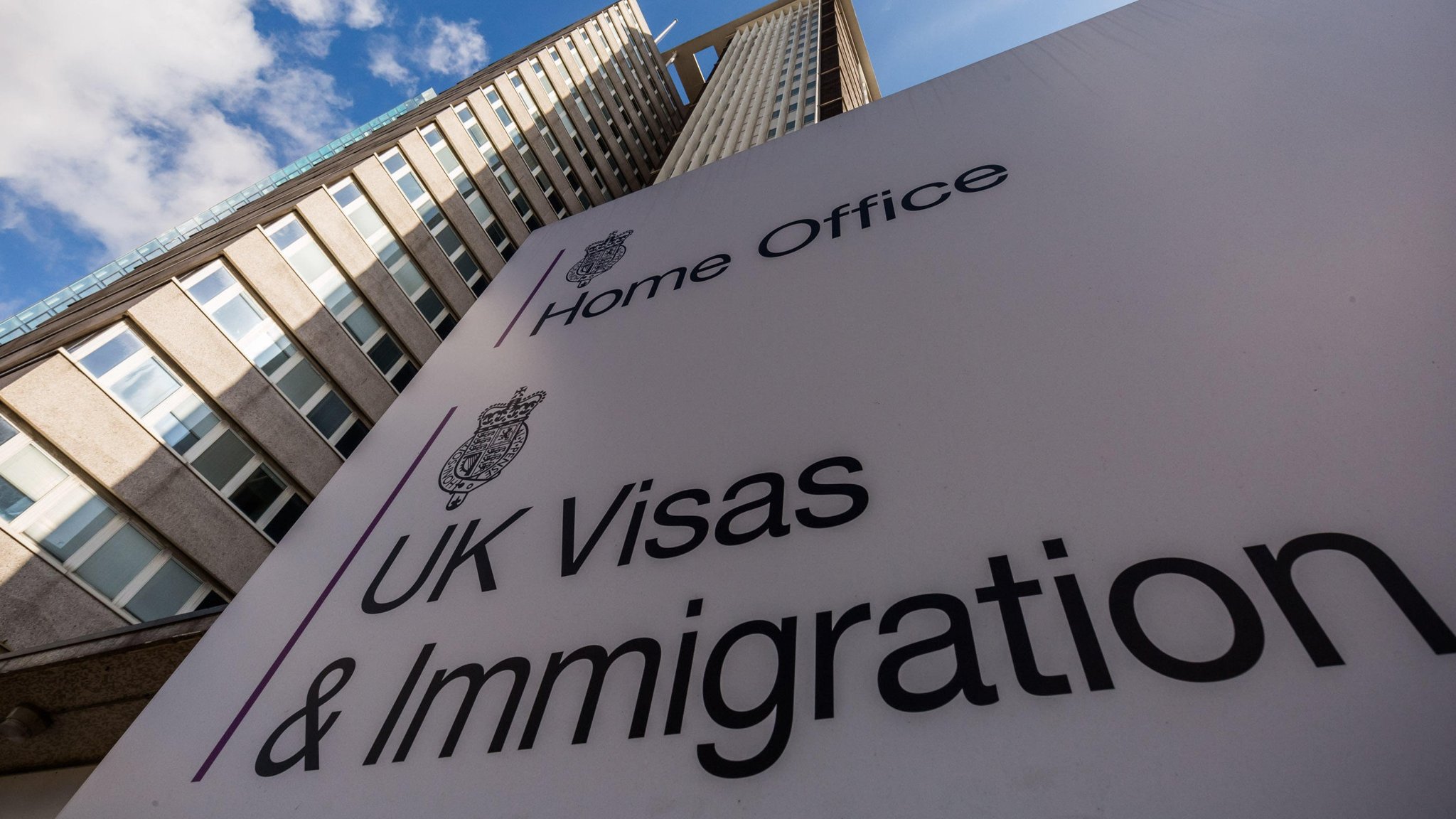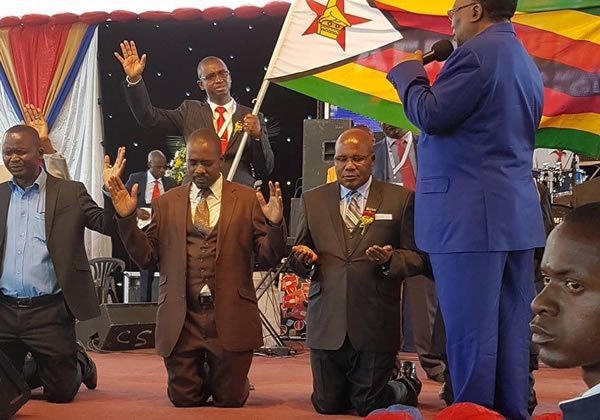By Alex T. Magaisa
After the 2013 elections, I was so despondent that when someone asked me about the prospects of an opposition victory in the 2018 elections, my reaction was that it was a complete write-off. We had just gone through an energy-sapping process whose outcome had been mentally-draining. What else could be done in 2018 which had not been done in 2013, when prospects seemed so bright?
It’s just over three years since that conversation and the 2018 elections are due in less than two years. A lot has happened in the intervening period and might have changed my opinion, but regrettably, it is still lukewarm. It is a serious indictment on the opposition that at a time when ZANU PF is at its most divided and probably weakest, they have completely failed to take advantage. This article assesses the current state of politics in Zimbabwe and based on present conditions the prospects in 2018.
Participate or boycott?
ZANU PF has resisted electoral reforms and the opposition faces a usual dilemma: to participate or boycott. History tells us the latter is unlikely. The MDC-T and other opposition parties have boycotted by-elections after the 2013 election, but this has been an exercise of shutting the stable door after the horses have bolted. The election that mattered and where a boycott would have worked more effectively was the 2013 elections. Then, the eyes of SADC, the AU and the rest of the world were on Zimbabwe and the question of legitimacy and acceptance mattered to President Mugabe and ZANU PF. It is unlikely that a boycott of the 2018 elections will be as effective as it would have been in 2013. Most African countries generally hold shoddy elections, but they are almost invariably endorsed in the end. Besides, most opposition MPs who are now used to their lifestyles are often unwilling to sacrifice their seats. Parliament is a poor man’s gravy train, but a gravy train nonetheless.
Furthermore, a general election has greater stakes than by-elections. It is easy to by-pass a single by-election and sacrifice the interest of one aspiring candidate, but missing a general election means five years out in the cold. The core business of every political party is to gain political power and since elections are the constitutional means to power, they are compelled to contest. For leaders such as Tsvangirai, 2018 is probably the last available chance. It is hard to imagine he can forgo 2018 and wait for 2023 and that his subordinates will be happy to carry on as usual. If the MDC-T boycotts, other opposition parties will happily take advantage of the void. Based on this, it is safe to assume that the MDC-T and other opposition parties will contest the 2018 elections.
ZANU PF’s record of failure
Two important features have defined ZANU PF’s rule since it regained sole control of government in 2013:
Imploding economy
First, after riding on the relative success of the Inclusive Government, the ZANU PF government dismally failed to manage, let alone grow the country’s economy. Its 2013 campaign promises were encapsulated in the slogan “Indigenise, Empower, Develop, Employ”. The much-vaunted indigenisation policy has floundered. Empowerment is a fiction which no-one believes. There has been no development. And after making a grand promise to deliver 2.2 million jobs, more people have lost jobs since 2013. After a Supreme Court labour ruling in July 2015, more than 100, 000 people reportedly lost their jobs within a few days as businesses took advantage to lay off excess workers. ZimAsset, its economic policy package, never really took off. Mugabe outlined a Ten-Point Plan in 2015 but it has yielded nothing of substance. Instead, the economy has continued to contract.
In May 2016, citing cash shortages, the Reserve Bank of Zimbabwe announced it was going to introduce a new surrogate currency – bond notes – allegedly backed by a $200 million facility from the Cairo-headquartered AFREXIM Bank. It has faced stiff resistance from citizens who don’t trust government with currency management after suffering losses in 2008, when the Zimbabwe Dollar was abandoned a year later. Then, with hyperinflation hitting 500 billion percent, government was printing worthless bearer cheques, touting them as money. “You rigged the election but you can’t rig the economy,” is a common line from the opposition, directed at the hapless and clueless ZANU PF government.
The Finance Minister, Patrick Chinamasa has spent the last three years courting the IMF and other international finance institutions to no avail. With most ordinary Zimbabweans feeling the squeeze, there is fertile ground for opposition parties to build some momentum. But they too seem to be labouring under the weight of a dying economy and have failed to capitalise. There seems to be a mistaken belief, held for so long by many in opposition circles, that somehow the economy will implode in such a way that ZANU PF will have no choice but to give up political power and that they will move in to fill the void. The truth is that the opposition needs to be doing more and power is not manna, which falls from the heavens.
Succession wars
The second feature is the internecine wars within ZANU PF, which have split the party into two distinct camps. Factions in ZANU PF are not new. They have largely been restricted to the provinces, such as Masvingo, which for a long time was split between a faction that backed Vice President Simon Muzenda and another, which was loyal to Edison Zvobgo, a long-serving minister who aspired to succeed Mugabe. Further, the party has always been able to contain factionalism and feign unity whenever its power came under threat from external forces.
After 2013 however, for the first time after former Secretary General Edgar Tekere was expelled from ZANU PF in 1988, ZANU PF went through a major political change when former Vice President Joice Mujuru and several other party heavyweights were also dismissed from both party and government. Casualties included long-serving veterans like Didymus Mutasa and Rugare Gumbo, among others. If Tekere’s departure in 1988 was a minor tremor, this was a major earthquake which shook ZANU PF to the core. Mujuru and her allies have since formed a new political party, Zim People First.
While the expulsion of Mujuru and her allies might have signalled the creation of a new reformed ZANU PF rid of so-called malcontents, as far as succession wars go, this was just the first phase. No sooner had the dust settled did the second phase erupt, this time pitting former close allies against each other.
The chief characters in this new battle to succeed Mugabe are Professor Jonathan Moyo and Emmerson Mnangagwa. Mnangagwa had taken over as Vice President following Mujuru’s ouster and many thought he was the new favourite. Moyo and Mnangagwa had been close allies in 2004, when the latter was gunning for the Vice Presidency, until his ambitions were brutally shot down after the then renowned “Kingmaker”, former commander of the army General Solomon Mujuru engineered his wife Joice Mujuru’s ascendancy to the post. Retired General Mujuru met an untimely death in a suspicious fire incident in 2011, which most suspect was an assassination linked to the succession wars. It seems the debacle over the Tsholotsho Declaration marked the beginning of a breakdown in relations between the two men, as Mugabe kept Mnangagwa but dumped Moyo, who endured 3 years in the cold, until he was brought back into the party after the 2008 elections. It looks like Moyo never forgave Mnangagwa and in the past two years he has been the latter’s biggest critic, far more than the opposition. Using social media, Moyo regularly fires salvos at Mnangagwa, calling him and his allies, “successionists”, “Gukurahundists”, “murderers” and a host of other names.
Mnagagwa allegedly leads Lacoste (the crocodile) faction, a reference to his moniker while Moyo is reportedly with the G40 faction, which allegedly has Grace Mugabe, the President’s wife, as a key ally. Another key ally is Saviour Kasukuwere, the party’s political commissar.
In the context of those fights, Mugabe has also lost the backing of a key constituency – the war veterans – who have been an important part of his political machinery, especially during elections. The friction between Mugabe and his former allies from the war is a significant development which threatens the soundness of ZANU PF’s political machinery.
With the raging factionalism, ZANU PF is certainly not the force it was in 2013. Then, it covered up the cracks and fought the election as a united force. However, with these apparent fissures and weaknesses, unprecedented since independence, one might have thought the opposition parties would seize the moment and capitalise on it. Instead, they have been mired in their own set of challenges which seem to have left them weaker. The Mujuru challenge is hampered by uncertainty and lack of trust. Temba Mliswa’s antics after winning the Norton by-election have not done them any favours. Even though Mliswa was not a Zim People First candidate, the fact that he has been cosying up to ZANU PF and making disparaging statements towards Tsvangirai and the MDC in the aftermath of his victory have given the impression that once ZANU PF, always ZANU PF. People have always suspected that Mujuru and her allies are still ZANU PF and Mliswa’s behaviour will make it harder for people to trust ex-ZANU PF politicians. For its part, the MDC-T has to do some cleaning up as Mliswa’s about-turn is the second time after Jonathan Moyo did the same after the 2008 elections. The greatest threat of Mliswa’s conduct is in regard to the on-going coalition talks between the opposition parties. Can they trust that the Mujru team will not return to ZANU PF if an opportunity beckons? The Mujuru team clearly has its work cut out as it tries to convince opposition allies that they are a genuine outfit.
MDC Split
Splits are not unfamiliar within the main opposition. The 2005 split set a bad precedent. After the 2013 elections, frustration, disappointment and fatigue got the better of the party leadership and membership. It was a devastating outcome which floored everyone, both physically and mentally. There was a view that the party leadership needed to change, that the party needed a fresh impetus. This view was that the MDC-T needed leadership renewal. But there was also a large constituency that was loyal to the leadership. The result was a split, whose symbol is the Mandel Declaration when a group of party leaders led by Secretary General Tendai Biti and Treasurer Elton Mangoma “fired” party president Morgan Tsvangirai and others. It set the scene for a vicious dog-fight which culminated in a split and the expulsion of Biti and allies from Parliament. Like in 2005, the split was bitter and poisonous. Former allies became enemies overnight. Harsh words were exchanged. It didn’t take long, however, before Biti and Mangoma had a fall-out too, resulting in another split and Mangoma formed his own outfit which he called Reformed Democrats of Zimbabwe (RDZ).
ZANU PF sat back and watched gleefully as the free circus unfolded, realising its chief opponent and threat was in serious decline. The implosion in the MDC-T allowed ZANU PF the luxury of going through its own bitter and divisive succession battles without worrying about any threat from the opposition. With a weak opposition, it was the best time for ZANU PF’s succession wars.
Beyond current leaders
In fact, both ZANU PF and the MDC-T are facing an amazingly parallel problem: leaders in the second layer of leadership are more concerned with scenarios post their current leaders than supporting them. In ZANU PF, the fight is over succeeding Mugabe, who carries the burden of old age. In the MDC-T, the fight is over succeeding Tsvangirai, who carries the burden of ill-health. Tsvangirai was diagnosed with colon cancer earlier this year and has been undergoing treatment. For the leaders immediately below them, they are already looking beyond these two leaders who have been the most significant political actors for the last decade and a half. These subordinates are no longer working for their leaders but to advance their own personal interests. In this sense, both parties are in the cusp of a new era.
Boycotting elections
The second feature of MDC-T’s tenure as the official opposition since 2013, has been its refusal to participate in elections without reforms, leading to a boycott of all by-elections. This Parliament has had more by-elections than any before because of the succession wars that have dogged both parties. Both ZANU PF and the MDC-T have triggered a constitutional clause which allows parties to expel MPs on the ground that they are no longer members of the party and these measures have resulted in a large number of by elections. The MDC-T boycott has left ZANU PF with a free pass, as there is no other credible opposition taking part. While there is an unmistakable sense of principle in sticking to the decision, giving away seats to ZANU PF and the inconsistency have been unhelpful to the opposition.
First, MDC-T gave ZANU PF free passage to its strongholds in urban areas. These were MDC-T seats and it is more than likely they would have retained them had they contested. Now ZANU PF has a presence where it would not have had any. The consequences of conceding space will be measured in 2018.
Second, ZANU PF has used the by-elections to register its supporters in great numbers because ZEC has been building a new roll. Since it wasn’t participating, there was little incentive for opposition supporters to register to vote. This might prove costly in 2018. The opposition have to hope that ZEC sticks to its promise to create a new biometric voters roll which will require a completely new voter registration exercise.
Third, after refusing to contest in most by-elections, the MDC-T nevertheless campaigned for Temba Mliswa in the Norton by-election in October 2016. It confuses supporters when a party declares a boycott but nevertheless participates indirectly by backing and campaigning for a third party.
Fourth, although the party refused to participate in elective by-elections, it had no problem taking up seats offered on a proportional representation system. These inconsistencies are not helpful.
Has the push for electoral reforms produced results? So far, progress has been painfully slow. The boycott of by-elections does not seem to have exerted sufficient pressure for reforms. Nearly four years since the new constitution was adopted, realignment of legislation with the new provisions, values and principles remains a pipe-dream for the most part. NERA, the opposition coalition for electoral reforms has made some efforts this year but ZEC pleads lack of powers. The irony is that constitutionally, in terms of section 157, ZEC has the mandate to advise government on electoral reforms. There has been an amendment process at least once after 2013, and one has to wonder why it did not use that opportunity to get the powers it says it needs.
Citizens Movement
2016 has seen a rise in citizens-led groups, outside the formal terrain of traditional political parties and civil society organisations. The most significant and best known of these groups has been #ThisFlag which had Pastor Evan Mawarire as its figurehead. Dismissed at first by state media as a social media fad which would soon sputter and stop, #ThisFlag made thousands of Zimbabweans across the world dream. There was also #Tajamuka, #, #ThisGown and others which cropped up at a time when there was a great spirit of resistance among the people. Resistance to bond notes has galvanised people. Nevertheless, without formal structures and organisation and faced with the might of the state’s coercive apparatus, it has been hard to sustain the momentum. The state responded viciously, with attacks against protestors and jailing them. It changed laws and with the assistance of complicit courts successfully watered down the momentum of the protests by banning demonstrations in central Harare. Conflicts within and between the citizens-led movement have affected its effectiveness and impact. The departure of Mawarire on safety grounds was a major blow to the citizens’ movement as a whole. He was the one individual whose message and personality had galvanised people from all walks of life. His departure left a huge chasm which has not been easy to fill. Nevertheless, one of the by-products of the citizens’ movement this year is that it has opened platforms a new generation of leadership, most of whom were hitherto unknown in traditional political and civil society spaces.
Going forward the citizens’ movement can be an important force to reckon with. Its rise has been partly a reflection with people’s desire for something fresh in the struggle for democracy and political change in the country. People outside existing political parties and civil society groups have been looking for spaces through which to channel their views and motions. The citizens’ movement provided that channel. Unsurprisingly, the reception of the citizens’ movement by traditional political parties and civil society groups has been lukewarm. Those who have been in the political and civil society spaces have viewed the newcomers as upstarts and for their part, the newcomers have sometimes portrayed an impression that they were breaking new ground, when in fact history suggests that there are precedents. The truth is that both the newcomers and the old timers need each other. The old have experience of the struggle, while the new bring in in fresh ideas, energy and impetus. Political parties also have no need to fear the citizens’ movement, which is not gunning for political power. Instead, it seems content in the role of handmaiden to the traditional opposition parties. This might change, however, depending on the ambition of citizens’ movement leaders and their organisation capacities. After all, the MDC is itself a product of a citizens’ movement in the late 1990s.
Battle for new members
A common weakness for both the ruling and opposition parties is their inability to appreciate the changing political landscape, particularly in voter demographics. The greatest battle in 2018 will be over new voters. There is no guarantee that young voters belong to one or the other party. In the past, ZANU PF has relied on the rural vote, while the MDC has done well in the urban vote. Since demographics favour the rural vote, with 67% of the population in rural areas, ZANU PF has often had a better head-start in elections. However, Zimbabwe’s population is getting younger and by 2018, nearly half, if not more voters will be under the age of 30 years. If these young people register and are eligible to vote, they will be the most decisive demographic group. Yet this is an untapped resource. Neither the MDC-T nor ZANU PF can claim exclusive loyalty of these young people. Zim People First, the as yet untested newcomer, can’t also take their support for granted. While ZANU PF has done well in rural areas, the MDC-T and other opposition parties have not done well enough to get eligible voters to register in urban areas. To be sure, ZEC has been a stumbling block, frustrating urban voters, but if the opposition is to make headway, it must make an effort not just to penetrate the rural communities and sell their vision, but also to get young people in urban areas to register to vote. The problem is most parties are content to lap up the support of their core supporters – the die-hards who never waver. They see them at rallies, singing, dancing and cheering for them and they convince themselves that they have support. They never pause to consider if there are any new supporters at all in the crowd. They are happy to celebrate fish that’s been in the fish pond for years. They are not going out to catch new fish.
Is there room for an independent candidate?
There have been some questions as to whether an independent candidate could be a viable alternative given the parlous state of both the ruling party and the opposition, which is still too divided. From time to time, certain names have been thrown into the mix, although none of them have made any declarations. Temba Mliswa has reportedly made some noises to that effect following his recent victory in the Norton by-election. It is unclear whether he was serious, but it is likely the talk of man presently basking in the glory of unexpected success. In such moments, any dream seems possible. But how feasible is it for an independent candidate to succeed in a presidential election in Zimbabwe?
This is a big question that probably deserves its own article. But suffice to say it’s a tall order. A presidential candidate requires political infrastructure that covers the entire country. It’s not enough that the person has a high profile or has succeeded in other fields. There is need for structures that can penetrate all areas of the country and this is usually best accomplished through the agency of a political party. The two candidates who have made the most impact in elections, Mugabe and Tsvangirai, have done so because they are supported by an extensive, national political infrastructure. This is also why those who inherit their positions will have an advantage over others and why there is serious competition between subordinates in their respective parties. An independent candidate would need a great deal of money and resources to recruit foot-soldiers to do the leg work throughout the country.
Conclusion
More than halfway since the last election, the ruling party is in turmoil, but the opposition is in no better shape. This is to the ruling party’s advantage. They hold the levers of poer and can ban on them. Failing to find leadership from established opposition parties, citizens groups have emerged but their Achilles Heel is a severe lack of formal organisation and unified leadership. Like all opposition parties in the past, they will be infiltrated by state agents and conflicts have already begun to emerge. They have to imagine big and start looking at more formal roles within the bigger picture. 2017 will be a different year, especially as the 2018 elections loom on the horizon. Some people have toyed around with the idea of independent candidates but without sufficient political infrastructure, this will not work. The main opposition has been disappointing so far. At a time when ZANU PF is probably at its weakest since independence, the opposition has been found wanting and has failed to capitalise. Corruption is rampant, the economy is in free-fall and the government is toying around with hare-brained ideas. All this is fertile ground for the opposition, but the lethargy is inexplicable. Despite ZANU PF’s obvious failings, 2018 still looks like a write-off unless and until the opposition gets its acts together. Without more from the opposition, ZANU PF could still stroll past the 2018 elections and it will be more misery for the long-suffering people of Zimbabwe. If anything, this is a wake-up call to the forces of opposition and the citizens of Zimbabwe, otherwise it’s another five years of disaster under ZANU PF leadership.
waMagaisa
wamagaisa@gmail.com
For more, please visit Alex’s blog at www.alexmagaisa.com






